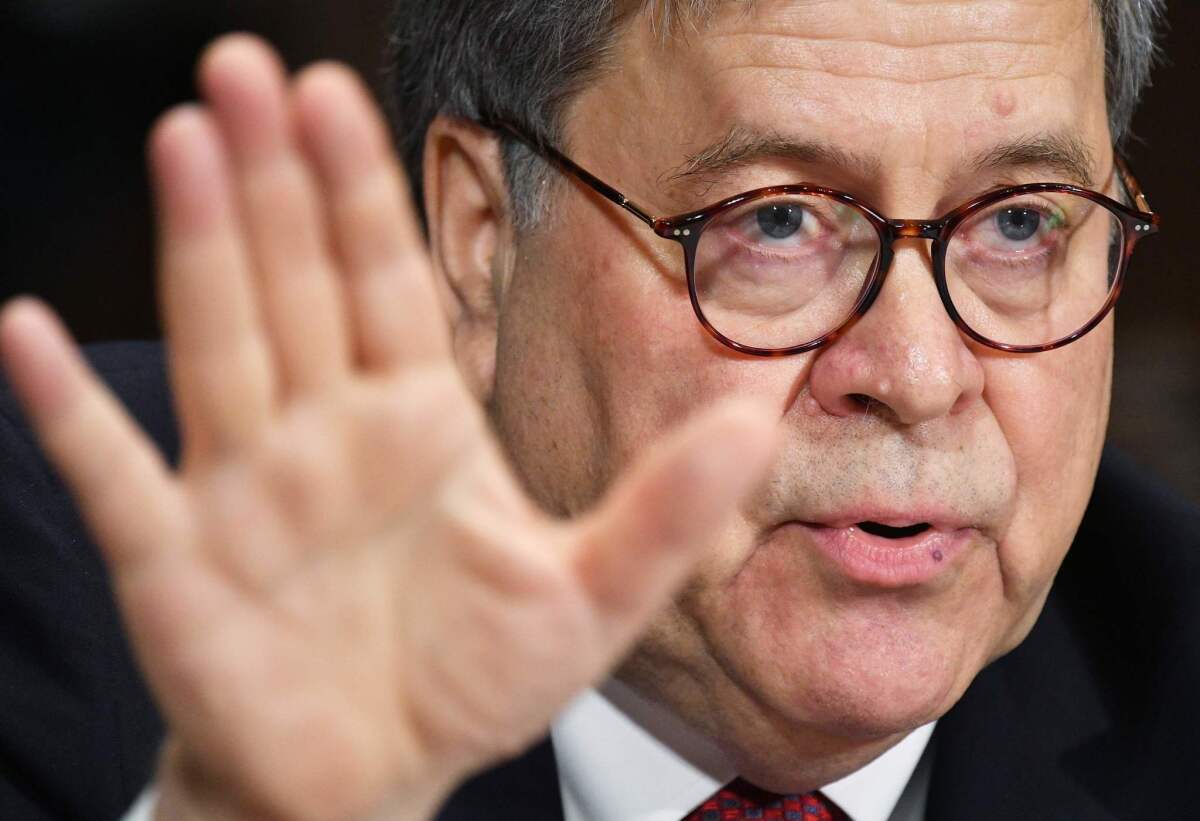House holds Barr, Ross in contempt of Congress over 2020 census citizenship dispute

- Share via
WASHINGTON — The House voted Wednesday to hold Atty. Gen. William Barr and Commerce Secretary Wilbur Ross in contempt of Congress for refusing to comply with its subpoenas seeking information about why the Trump administration wanted to add a citizenship question to the 2020 census.
It marked the first time the full House held Trump Cabinet officials in contempt since Democrats took over the chamber.
The mostly partisan 230-198 vote comes days after Trump, blocked by the Supreme Court from proceeding with the citizenship question, announced that he would give up the legal battle.
In June, the Supreme Court ruled 5 to 4 that the reason Ross had provided for adding the citizenship question — to help in enforcing the Voting Rights Act — was “contrived.” The justices blocked the Commerce Department from adding the question unless administration officials could provide a more compelling rationale.
Critics say the real reason for adding the question was to suppress census turnout in Democratic-majority states like California, where large immigrant populations would be afraid to respond. That would lead to a drop in congressional seats and federal funds for those states.
The House Reform and Oversight Committee voted last month to advance the contempt resolution to the full House after Barr and Ross declined to share documents detailing the rationale behind the proposed citizenship question.
The contempt citation will be automatically referred to the U.S. attorney’s office in Washington, D.C., for prosecution, but that almost certainly won’t happen, since Barr oversees the office.
It’s more likely that Democrats intend Wednesday’s vote as a symbolic gesture meant to show their disapproval. They could also turn to the courts for help in enforcing their subpoenas.
Lawmakers voted in June to authorize legal action to make Barr and former White House Counsel Don McGahn testify after they refused Judiciary Committee subpoenas related to the investigation by Robert S. Mueller III into Russian election interference and Trump’s possible obstruction of justice. But Democrats stopped short of holding them in contempt, even though the committee voted to do so.
Trump claimed that executive privilege prevented the witnesses from complying with congressional subpoenas in both cases.
More to Read
Get the L.A. Times Politics newsletter
Deeply reported insights into legislation, politics and policy from Sacramento, Washington and beyond. In your inbox three times per week.
You may occasionally receive promotional content from the Los Angeles Times.









